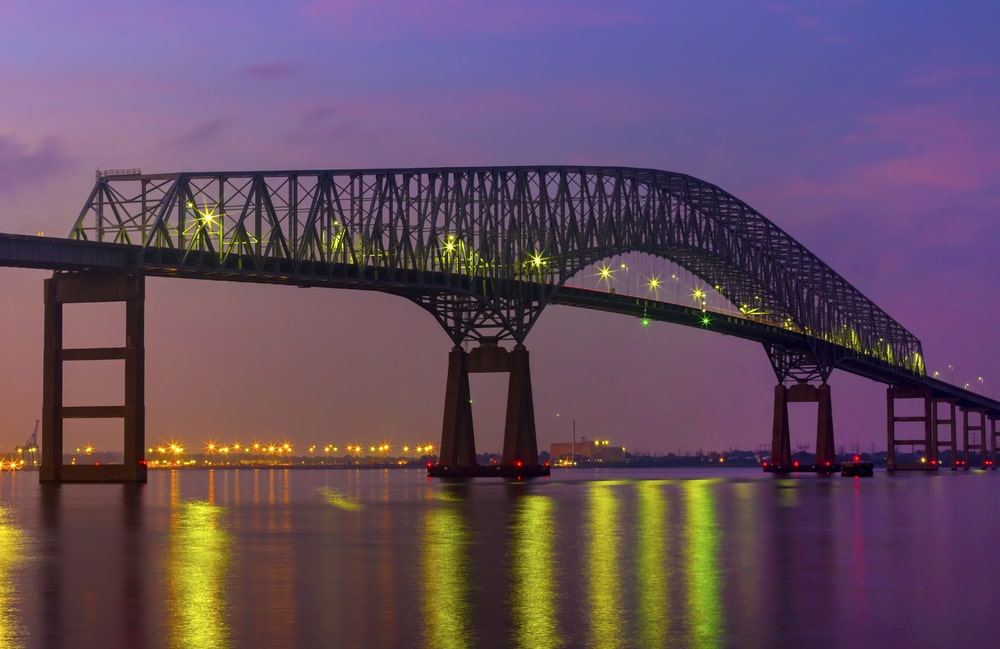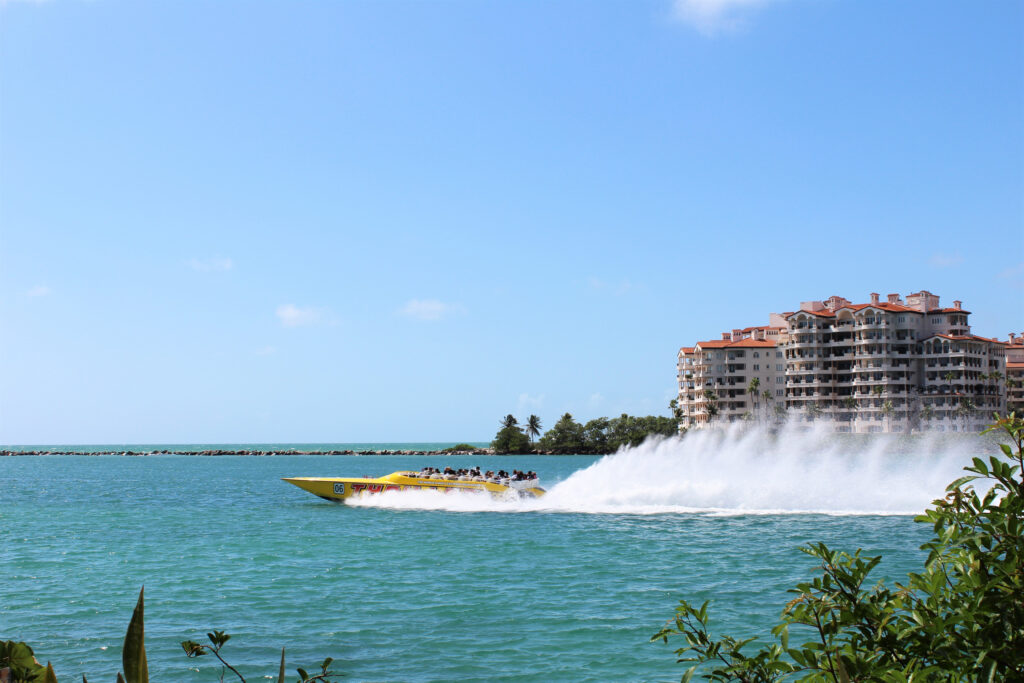The Nation’s Leading Cruise Ship Accident Lawyers can Help You Demand Total Compensation

For many vacationers, going on a cruise is an exciting and novel experience. Even those who have sailed before find something special about spending time at sea. While it is true that a cruise vacation can be one of the most relaxing vacation options, it is also true that cruise ship law and jurisdiction can be some of the most complex.
But, if you’re preparing to set out on a cruise, it is important to understand what rules and regulations apply to you and your traveling companions. We always advocate for cruise-goers to obtain as much information up front as possible. Although your chances of accident and injury are slim, being prepared with a basic understanding of your legal rights puts you in a much stronger position from which to move forward. With this knowledge in mind, you will be better equipped to have the most enjoyable and stress-free experience you can, while navigating any unexpected events that come your way. Whether you are a cruise ship crew member or passenger, when you suffer injuries due to the ship’s negligence, you have the right to total reimbursement of your damages. Continue reading to find out more about how our dedicated cruise ship accident attorneys can help you recover fair compensation in your case. Connect with our personal injury attorneys as soon as possible to schedule your free, no-obligation consultation.
Why is Cruise Ship Law So Complex?
One of the main reasons that prosecuting a crime at sea can be more challenging than prosecuting a crime on land is that maritime law is known for being one of the least updated and most intricate of the legal sectors. In many cases, laws that govern sea-based operations are decades–or in some cases hundreds of years–old.
In that time, a lot has changed on the high seas, meaning that these old laws may no longer be relevant or beneficial to passengers and crewmembers. Yet, without any new legislation to clarify or modernize maritime law, attorneys and their clients are left to wade through the often murky legal waters.
Lawsuits over incidents occurring aboard cruise ships are usually filed in courts in specific jurisdictions that are selected by the cruise line and specified in the cruise passenger ticket. For most of the major cruise lines (Carnival, Royal Caribbean, Celebrity, Norwegian) the jurisdiction is in the Federal Court in Miami (United States District Court for the Southern District of Florida); for Princess, it is in California; for Holland America it is in Washington State. Also, the federal law allows cruise lines to shorten the statute of limitations within which passengers are allowed to file lawsuits for personal injury to 1 year from the date of the incident, from the normal 3 year maritime personal injury statute of limitations. Also, the cruise lines are allowed to require that they be provided written notice of a claim within 6 months of the incident. You can see how quickly navigating cruise ship laws and jurisdiction can get complicated. It is very important to refer to your cruise ticket for all of the terms and conditions related to your cruise!
Additionally, the international itineraries of many cruises can throw an extra layer of confusion on cruise ship cases, causing many to wonder where to sue for incidents occurring in ports of call; and who exactly who is allowed to enforce the law at sea?
When is the FBI involved?
Cruise ship law and jurisdiction is a curious thing. Due to the fact that cruises do not have official police, it may seem as though crimes can take place with little oversight. After all, cruise security is not quite as intimidating to criminals, nor as equipped to handle the more serious crimes that take place at sea. Especially if you are an American citizen, you may be wondering when the FBI gets involved in cruise crimes? According to official testimony from the FBI, the United States has jurisdiction over investigating a crime at sea if:
- The ship is a U.S.-owned vessel. This is true regardless of the flag, nationality of the victim or the perpetrator. This applies when the ship is still within U.S. maritime jurisdiction, but outside of the jurisdiction of any particular state.
- The crime was committed against or by a U.S. national but took place outside of the jurisdiction of any nation.
- The crime took place in the sea under U.S. jurisdiction (within 12 miles of the coast). This applies regardless of the nationality of the ship, the victim or the perpetrator.
- The individuals involved–either the perpetrator or the victim–are U.S. nationals on a ship that has departed form or will arrive in a U.S. port.
Since 2010, the Cruise Vessel Security and Safety Act has required cruise ships that embark and disembark in the United States to report all crimes that take place at sea. In general, when crimes are committed in territories under U.S. jurisdiction, the FBI focuses its efforts on incidents that have specific penalties as specified under Title 18. These crimes include: assault, murder, attempt to commit murder or manslaughter, kidnapping, sexual abuse, robbery, and theft. These crimes and more are included in the cruise crime statistics reported by the Department of Transportation.
That said, crimes in international waters may also require the involvement of the FBI.
Crimes in International Waters
Once a cruise ship sails more than 24 miles off of the coast of any given country, it is considered to be in international waters. This means that the laws governing crimes on the ship are determined by the flag that the ship is sailing under. It is not uncommon for a ship to be flagged in a different country than the one from which it departed. In fact, cruise lines often flag their ships in countries where the laws are less stringent, so as to avoid greater oversight.
If a crime occurs at sea, outside of U.S. waters, senior level agents in the FBI will work with the Department of Justice’s Office of International Affairs to determine the level of FBI involvement. In most cases, the FBI’s role in an international investigation will largely depend upon the country where the crime took place, as well as FBI resources in that particular region. It is forbidden for the FBI to enter a foreign flag vessel outside of U.S. territory to enforce U.S. criminal laws, without the permission of the flag state.
Crimes that take place outside of the U.S. in international waters require cooperation from all countries involved. This includes coordination of investigation efforts, evidence collection, and agreement upon the jurisdiction of all impacted countries. When given permission, the FBI will come on board the ship as soon as possible after a crime has taken place in order to examine and make proper notation of all available evidence associated with the event.
Failure to promptly notify cruise security of a crime can result in missed opportunities for the proper personnel to board the ship and conduct the necessary investigations. Regardless of which jurisdiction you are under, the sooner you report the incident, the greater chance you will have of creating a strong legal case in your favor.
Crimes in a Foreign Port
Although you may feel safest with the knowledge that the FBI will be investigating your case, as you can see, there are many times when this is not possible. Crimes in foreign ports can be one of those times. If a crime should take place in a foreign port, you should notify cruise security as soon as possible. The most likely scenario is that the local authorities will then board the ship in order to investigate the crime scene, gather evidence and receive testimony from all those involved. In some cases, the cruise may be delayed in its departure from the port, until the investigation is complete.
The moral of the story, and one of the biggest takeaways for passengers and crewmembers on international cruise journeys, is that regardless of whether you are on the high seas or in a foreign port of call, prompt reporting of crimes is key.
How To Abide By the Law When On A Cruise Ship
Often, it can feel as though the laws that govern behavior at sea are constantly in flux. After all, the laws that apply while sailing internal and territorial waters shift once the vessel enters the contiguous zone, and shift again when the ship enters international waters. In addition to their particularity, laws when aboard cruise ships are exceptionally complex, often containing unforeseen loopholes and little known exceptions that can make prosecuting a crime a time consuming endeavor even for skilled and experienced attorneys.
Due to the many unexpected ways that cruise ship law can turn your incident into a lengthy legal expedition, most cruise passengers and crew do their best to stay out of harm’s way. A good rule of thumb is to refrain from any behavior that may have negative repercussions on land. After all, it is far better to be safe than to unintentionally find yourself committing an international transgression.
That said, if you find yourself a victim of accident or injury at sea, you should know that the law is on your side. Do not hesitate to report the crime to the nearest cruise security, so that the investigation process can begin as quickly as possible. You can also make note of any evidence and do your part to ensure that the proper information has been saved, to help you when you speak with your maritime lawyer. Regardless of what crime has occurred, you will want to give yourself the strongest possible foundation for your attorney to build your legal case.
Recovering Maximum Compensation for Your Cruise Ship Accident Injuries
Whether you were attacked, sexually assaulted, or suffered catastrophic injuries due to dangerous conditions on the ship, when you are aboard a cruise line and suffer injuries, you have the right to compensation for your damages. This is particularly true if the cruise line’s negligence or misconduct contributed to the injuries you sustained. Depending on whether you are a passenger or crew member, your opportunities for financial recovery will vary. Some of the top ways to recover compensation after a cruise ship accident include:
- Filing a worker’s compensation claim
- Filing a claim under the Longshore and Harbor Workers Compensation Act (LHWCA)
- Filing a claim with the cruise line’s insurance company
- Filing a lawsuit against the cruise line or other liable party
In any case, you are entitled to total compensation for your damages. Although the ways in which you recover compensation for your losses can vary, the types of damages you have the potential to recover are generally the same. Some of the most common recoverable damages could include:
- Pain and suffering
- Lost wages
- Medical bills
- Personal property damages
- Permanent disability
- Embarrassing skin scars
- Disfigurement
- Emotional trauma and mental anguish
- Loss of consortium
- Reduced quality of life
- Loss of household services
- Loss of employee related benefits
- Diminished earning potential
- Future healthcare costs
- Reimbursement for your cruise tickets
These are only a few examples of potentially recoverable damages. When you discuss the details of your case with our respective cruise ship accident lawyers, you can learn more about how much your cruise ship injury claim could be worth and the steps you should be prepared to take to pursue the compensation you are entitled to.
Our Top Rated Cruise Ship Accident Attorneys Will Work Tirelessly to Get You the Compensation you Deserve
Our cruise ship accident law firm has had multiple attorneys recognized as “Best Lawyers” 2016-2024 ® and has been named to “Best Law Firms” ® by US News & World Report annually since 2016. Our leading cruise ship accident lawyers have more than 200 years of experience handling maritime law and cruise ship accident claims. We are uniquely equipped to go up against profit driven cruise lines and maximize your financial compensation.
At Lipcon, Margulies & Winkleman, P.A., we understand that laws when aboard cruise ships can cause even the most level-headed individual to feel overwhelmed. That is why we are here to help. We know what you are facing and the best way to get you the resolution you deserve.
When you work with us, you can rest assured that we know the ins and outs of cruise ship laws, so that you don’t have to. So no matter the size or scope of your case, if you or someone you love is ready to face your legal burden head on, do not hesitate to contact us today to get started. Fill out our secured contact form or call our office at 877-233-1238 to schedule your free consultation and start working on your cruise ship accident lawsuit today.
Published on November 3, 2019
Categories: Cruise Ship Law
Get Free
Consultation










